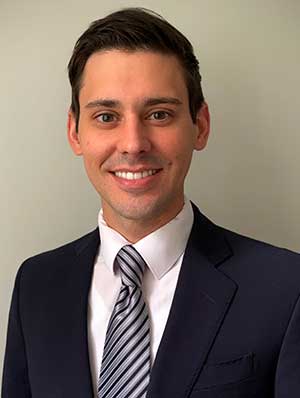How Far We Have Come
By: Kevin Swiatek, DO
November 13, 2020
There is a nervous energy around the hospital as we prepare for the next wave. People are quietly whispering about “the game plan” as if we are in a high-stakes game of chess that can be won. No one wants to say it out loud, but even with all we know about COVID-19, it is still a difficult time to provide care to the sickest patients as we learn more about this pandemic. The waning number of cases over the summer has given many of us time to reflect on the past few months of clinical practice.
It seems that this next wave will be different from the first. In the beginning, we didn’t understand how to care for these patients. Do we intubate right away? Do patients need high-cost, unproven, experimental medications? Do we need to develop a new paradigm of critical care medicine? We were so unsure of the “right thing” to do for these patients. Now, as several thousand scientific papers have been published about COVID-19 in the past 10 months, signals are starting to emerge, and we face different challenges. As cases rise across the country, we wonder how we will respond to the next challenge. We wonder how “COVID fatigue” and complacency about basic preventative health practices may have dire consequences, especially for the vulnerable among us.
I remember walking around the medical respiratory intensive care unit in March, when you could still see smiling faces looking back at you, and the infection control innovations of how to deal with the pandemic really started to take shape. At the time, we received our most up-to-date recommendations from Twitter and word-of-mouth anecdotes (I’m kidding…sort of).
I remember stopping to help at one patient’s room as a group of nurses, a respiratory therapist, a pharmacist, and a fellow attempted to feed the long, winding IV and vent tubing through cracks in the doors for the first time. It was clunky, but we made it work. There were lots of uneasy shrugs. “Yeah, we can make this work,” we said warily. It was then that I turned to my colleague, and we shared a nervous hug, astounded, thinking, “Holy cow, this pandemic is really about to happen.” Looking back, I now realize how far we have come.
We ran out of negative airflow ICU beds in the early days, as many hospitals did. The plan was to move into a space that had never even approximated an ICU before. The new area didn’t have nurses, equipment, or many necessary supplies. The call came in one night on my service as we filled to capacity: It was time to roll out the new unit, ready or not. Our team gathered handfuls of respiratory filters, IV tubing, medications, and supplies. We scrambled to make our new house a home for the patients who would eventually fill the unit. And we did it without a lapse in patient care. We did it then, and we will do it better this time around; indeed, it is amazing how far we have come.
These feelings and stories are not unique to me or to my hospital. We are the front line, and we take it in stride—not because we are unafraid, but because it is our job, and this is what we have been trained to do.

Kevin Swiatek, DO, is a third-year Chief Fellow in the Division of Pulmonary and Critical Care Medicine at Virginia Commonwealth University in Richmond, Virginia. Dr. Swiatek is a member of the CHEST Trainee Work Group. His clinical interests include general pulmonary medicine, care of patients with pulmonary hypertension, and using POCUS as a diagnostic tool in the medical intensive care unit. His scholarly interests include implementation of fellowship medical education, teaching point-of-care ultrasound, and clinical and diagnostic assessment of patients with pulmonary hypertension.